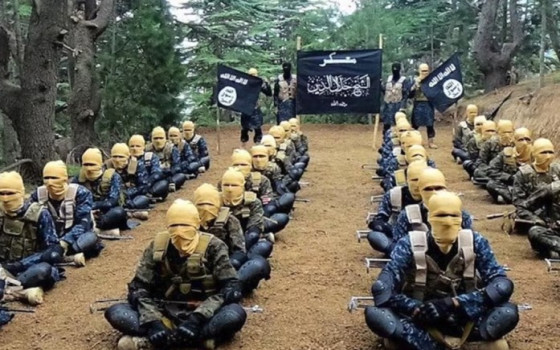
The return of ISIS again...Arrests in several European countries that preceded the recent attack in Moscow and a warning of the danger among Central Asian Muslims

- Europe and Arabs
- Tuesday , 26 March 2024 14:49 PM GMT
Brussels: Europe and the Arabs
In the wake of the terrorist attack that killed at least 139 people at the Crocus Concert Hall in Moscow, Russian President Vladimir Putin is doing his best to link the shooting incident - for which the Islamic State has repeatedly claimed responsibility - to Ukraine. Putin stressed this The allegations were made in a televised speech late on Monday in which he admitted that “the crime was carried out by Islamic extremists” and named ISIS, but implied that the “agent” was “the neo-Nazi Kiev regime”. ".
According to what was published by the international magazine "Politico" this morning, quoting analyst Dennis Levin, much of the world does not believe Putin's version of events, but what relationship could ISIS have with Russia? In his speech Monday, Putin hinted that his regime's warm relationship with Hamas and hardline stance toward Israel meant that Russia would not be a target for ISIS. He asked: “Are extremist Islamic and even terrorist organizations really interested in striking Russia, which today supports a just solution to the escalating conflict in the Middle East?” Thinking about Putin.
“Putin supported the authoritarian regime of Bashar al-Assad against the Islamic State during the Syrian civil war, and in September 2022, ISIS fighters claimed responsibility for a deadly attack on the Russian embassy in Kabul. ISIS also has fighters in Chechnya, where Islamic separatists have violently tried for years to oust themselves from power.” The Russian Iron Fist. According to Zoya Shevtalovich and Seb Starsevich from the playbook
Alert and concern: Meanwhile, Western security services are taking the renewed threat from ISIS with the utmost seriousness. In France, President Emmanuel Macron's government raised the threat alert to the highest level, citing planned attacks by the group.
According to the magazine: Macron's move comes in the wake of a series of frustrating conspiracies in many European countries. Last Friday, German authorities arrested two ISIS sympathizers suspected of planning an attack on the Swedish Parliament. Earlier this month, Belgian police arrested four young ISIS fans suspected of planning a terrorist attack on a concert hall. Last July, nine suspected ISIS conspirators were arrested in Germany and the Netherlands, accused of planning attacks. In April 2023, Swedish police arrested five men on suspicion that they were planning to carry out an ISIS-inspired attack. The list goes on and on.
Which begs the question: Is ISIS, the terrorist group that shocked the world with its atrocities in the mid-2000s, back and ready to haunt Europe again?
Not exactly, says Antonio Gestozzi, a London-based analyst who has authored several works on ISIS and its South-Central Asia affiliate, Islamic State Khorasan (which is particularly active in Afghanistan). Most importantly, ISIS never went away. “People are surprised because they think ISIS is gone,” Gestozzi said. “But they maintained a secret presence in Iraq, Syria and of course Afghanistan.”
KIDS ARE NOT NEW TO THE REGION: ISIS-K, or ISIS-K, gained global notoriety in 2021 as the group behind a series of bombings linked to the US withdrawal from Afghanistan. More ferocious than the Afghan Taliban, whom they view as enemies, ISIS-K is the group cited by US authorities when they tried to warn Russia of an impending attack on Moscow earlier this month.
But don't get it in a roundabout way: ISIS-K is just a name for the Islamic State group that operates in the "Khorasan" region, which, according to the group, covers Afghanistan, Iran, Turkmenistan and other countries in Central Asia. As Gestozzi points out, the old ISIS group claimed responsibility for the Moscow attack. “ISIS Khorasan is not new, it was found about six months after the main emergence of ISIS.”
What is happening? Defeated on the battlefield in Syria and Iraq, and having its bank accounts closed in Turkey, ISIS is desperate to carry out attacks to prove that it remains relevant and, more importantly, to get donations flowing again. “The first goal of these attacks is to collect donations,” Gestozzi said.
This time, however, the potential militants who will primarily carry out the attacks are not Syrians, Iraqis, or extremist minorities from the West, but — in several recent plots — Central Asian Muslims who often face persecution at home. They are essentially stateless.
“Nowhere to go” “They are young migrants,” Gestuzzi said. He added: "Most of them were recruited from Russia to fight in Syria. They were brutalized in the war. Now they have nowhere to go. They are in camps where they are treated like dirt. They have no homeland or family. This process produces essentially nihilistic people. They are willing To fight for significance: In its quest for visibility and money, ISIS is looking for targets. They have been trying in Europe for the past year and a half. These countries could be Germany or the Netherlands, but also France, Gestozzi warned, where tensions are rising between Government and Muslim society.
Bottom line: ISIS is far from its peak, and has reduced the war to being unwinnable.
Searching for relevance: In its quest for visibility and funding, ISIS searches for targets. They've been trying in Europe for the past year and a half. Gestozzi warned that these countries could be Germany or the Netherlands, but also France, where tensions are rising between the government and the Muslim community.
The bottom line: ISIS is far from its peak, living underground and deprived of fundraising opportunities. But the terrorist organization did not say its final word


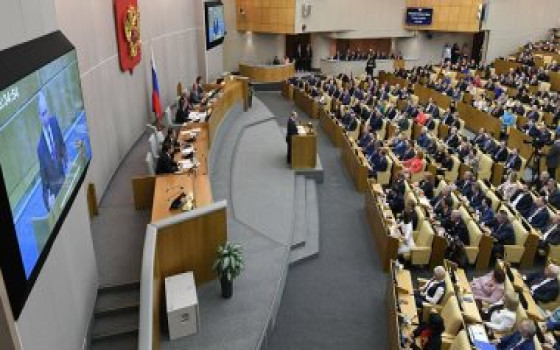
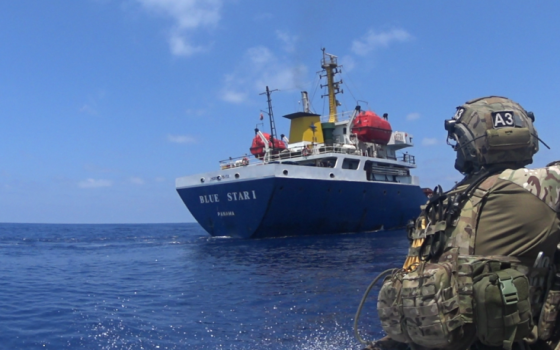
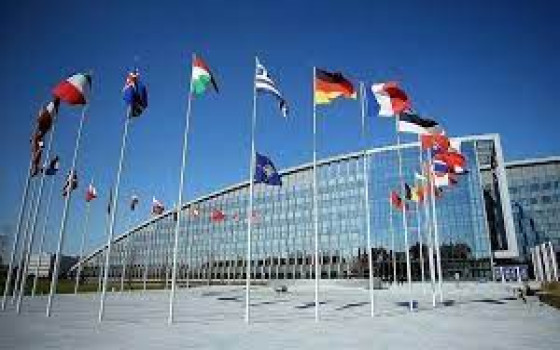
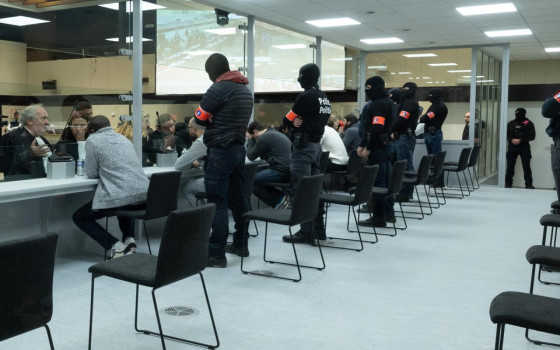
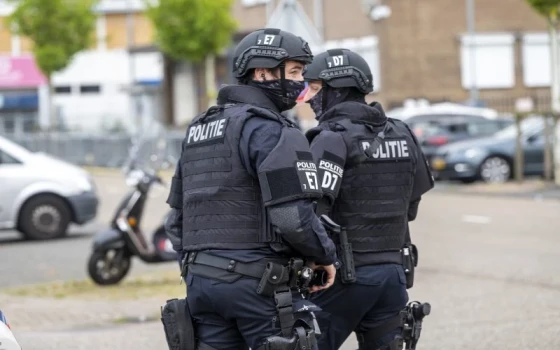
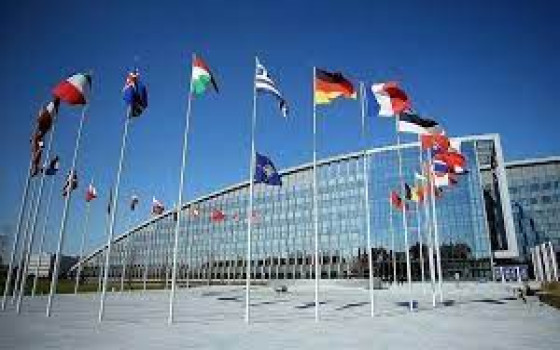
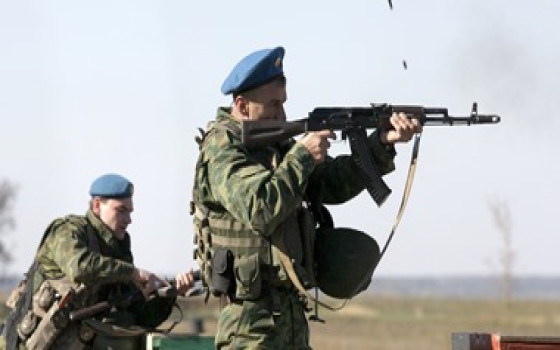
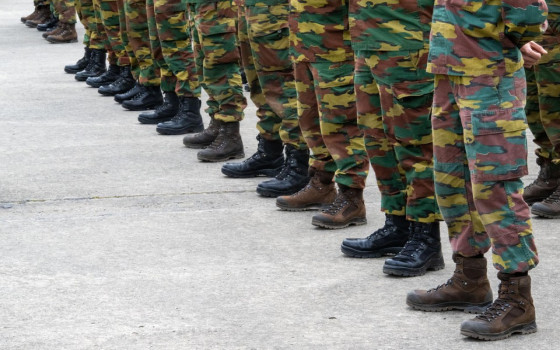

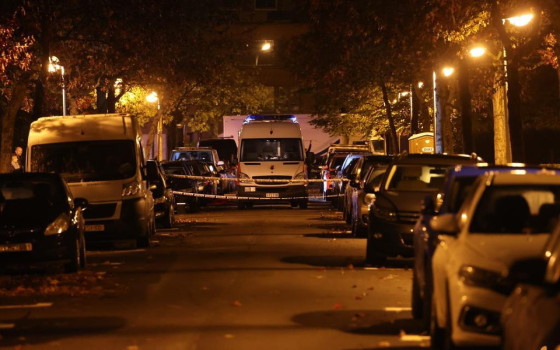
No Comments Found